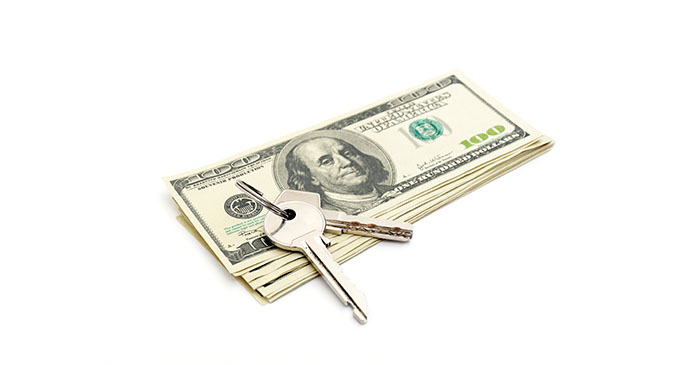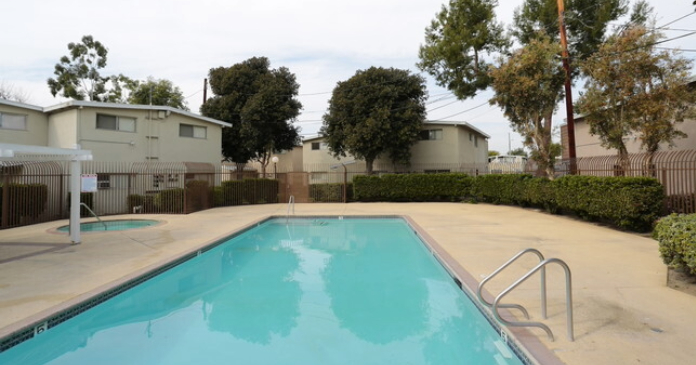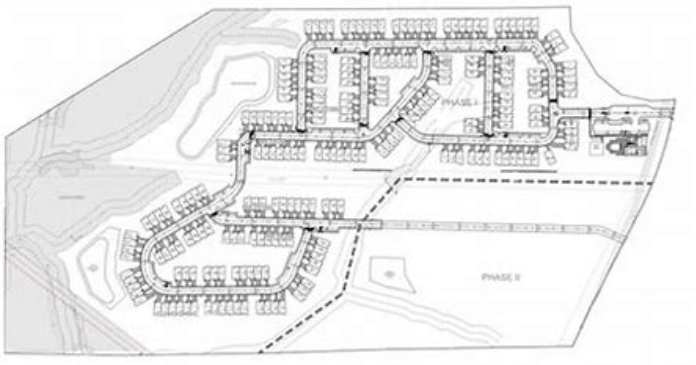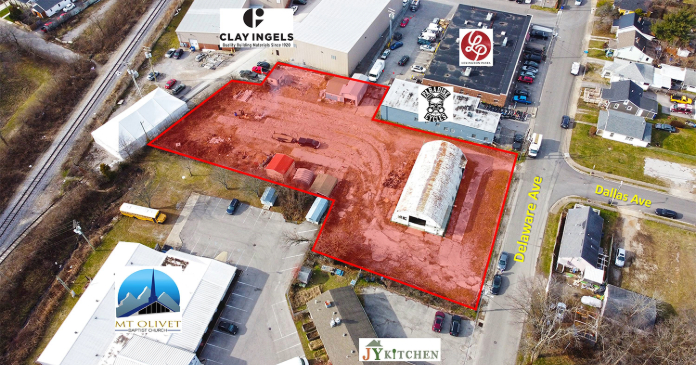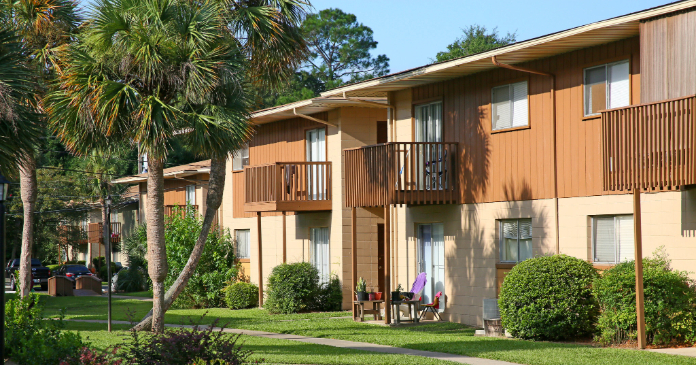Lenders have routinely delayed or blocked such transactions, known as short sales, in which they accept less from a buyer than the seller’s outstanding loan. Now banks have decided the deals are faster and less costly than foreclosures, which have slowed in response to regulatory probes of abusive practices. Banks are nudging potential sellers by pre-approving deals, streamlining the closing process, forgoing their right to pursue unpaid debt and in some cases providing large cash incentives, said Bill Fricke, senior credit officer for Moody’s Investors Service in New York.
Losses for lenders are about 15 percent lower on the sales than on foreclosures, which can take years to complete while taxes and legal, maintenance and other costs accumulate, according to Moody’s. The deals accounted for 33 percent of financially distressed transactions in November, up from 24 percent a year earlier, said CoreLogic Inc., a Santa Ana, California-based real estate information company.
Karen Farley hadn’t made a mortgage payment in a year when she got what looked like a form letter from her lender.
“You could sell your home, owe nothing more on your mortgage and get $30,000,” JPMorgan Chase said in the Aug. 17 letter.
$200,000 short
Farley, whose home construction lending business dried up after the housing crash, said the New York-based bank agreed to let her sell her San Marcos, California, home for $592,000-about $200,000 less than what she owes. The $30,000 will cover moving costs and the rental deposit for her next home. Farley, who is also approved for an additional $3,000 through a federal incentive program, is scheduled to close the deal Feb. 10.
“I wondered, why would they offer me something, and why wouldn’t they just give me the boot?” Farley, 65, said in a telephone interview. “Instead, I’m getting money.”
Tom Kelly, a JPMorgan spokesman, declined to comment on the company’s incentives.
“When a modification is not possible, a short sale produces a better and faster result for the homeowner, the investor and the community than a foreclosure,” he said in an email.
A mountain of pending repossessions is holding back a recovery in the housing market, where prices have fallen for six straight years, and damping economic growth. Owners of more than 14 million homes are in foreclosure, behind on their mortgages or owe more than their properties are worth, said RealtyTrac Inc., a property-data company in Irvine, California.
Foreclosure holdouts
Short sales represented 9 percent of all U.S. residential transactions in November, the most recent month for which data is available, up from 2 percent in January 2008, according to Corelogic. Bank-owned foreclosures and short sales sold at a discount of 34 percent to non-distressed properties in the third quarter, according to RealtyTrac.
As lenders shift their focus to sales, they are finding that some borrowers would rather risk repossession while they wait for a loan modification, according to Guy Cecala, publisher of Inside Mortgage Finance, a trade journal. In a loan modification, the monthly payment, and sometimes principal, is reduced to help prevent seizure. Homeowners facing foreclosure may live rent-free for years before they are forced out.
“That’s why the banks have got to pay the big bucks,” Cecala said. “The real question is why is the bribe so big? Is that what it takes to get somebody out of their home?”
Multiple banks
Banks also pay a few thousand dollars to the owners of second liens, whose loans can be wiped out by a short sale, to encourage them not to block the deals.
While JPMorgan is giving the largest incentive payments, other banks and mortgage investors are also offering them, according to interviews with 12 real estate agents in Arizona, California, Florida, New York and Washington. Lenders also provide incentives on loans they service and don’t own when the mortgage investor, such as a hedge fund, requests it.
JPMorgan, the biggest U.S. bank, approves about 5,000 short sales a month. It generally offers $10,000 to $35,000 in cash payments at settlement, real estate agents said. Not all of the sales include incentives.
Borrowers also can receive payments from the federal government’s Home Affordable Foreclosure Alternatives program, which in 2010 began offering as much as $1,500 to servicers, $2,000 to investors and $3,000 to homeowners who complete short sales.
Quicker resolution
For banks, approving a sale for less than is owned on the home can cut a year or more off the time it takes to unload a property. From listing to sale, the transactions took about 123 days on average at the end of last year, according to the Campbell/Inside Mortgage Finance HousingPulse Tracking Survey.
Lenders spend an average of 348 days to foreclose in the U.S. and an additional 175 days to sell the property, according to RealtyTrac. In New York, a state that requires court approval for repossessions, it takes about four years to foreclose on a home and then resell it, the company said.
Lenders can often afford to forgive debt, offer the incentive and still make a profit because they purchased the loan from another bank at a discount, said Trent Chapman, a Realtor who trains brokers and attorneys to negotiate with banks for short sales.
Chapman, who also writes a blog on TheShortSaleGenius.com, said he’s heard about 50 homeowners who have received incentives from lenders including JPMorgan, Wells Fargo & Co., Citigroup Inc. and Ally Financial Inc.
Wells Fargo
“My guess is they want to get rid of bad loans,” Chapman said. “If they short sale these types of loans, they have less of a headache and have some goodwill with the homeowner.”
Wells Fargo, based in San Francisco, offers relocation assistance of as much as $20,000 for borrowers who complete short sales or agree to transfer title through a deed in lieu of foreclosure “in certain states with extended foreclosure timelines, including Florida,” Veronica Clemons, a spokeswoman, said in an email.
Bank of America Corp. sent letters to 20,000 Florida homeowners as part of a pilot program, offering incentives of as much as $20,000, or 5 percent of the unpaid loan balance, Jumana Bauwens, a spokeswoman, said in an email. The program expired in December and the Charlotte, North Carolina-based bank hasn’t decided whether to introduce it in other states, she said. About 15 percent of the homeowners agreed to participate in the program, she said.
Citigroup offers
“The bank is pleased with the response,” Bauwens wrote. “The state is experiencing higher foreclosure rates than other parts of the country and is therefore seen as a viable market to gauge incremental short-sale response and completion rates when presenting homeowners with relocation assistance at closing.”
Citigroup offers $3,000 to most borrowers who qualify for its program, but the “amount may increase based on the circumstances of each individual case,” Mark Rodgers, a spokesman for the New York-based bank, said in an email. “Investor programs have different guidelines for relocation incentives, which we honor.”
Susan Fitzpatrick, a spokeswoman for Detroit-based Ally, didn’t comment specifically on incentives when asked about them. Borrowers typically can’t negotiate the incentives, which arrive by mail, Chapman, the Realtor, said.
Tap on shoulder
“It’s not really easy to identify the guidelines because Chase doesn’t tell you, they kind of tap you on the shoulder,” he said. “When I first saw it in January 2011, I thought it was a joke or a typo. I was convinced it must say $3,000, not $30,000.”
Offering enough for the homeowner to put down a deposit on a rental apartment is reasonable, said Sean O’Toole, chief executive officer of ForeclosureRadar.com, which tracks sales of foreclosed properties. Giving tens of thousands of dollars to delinquent homeowners sends the wrong message, particularly if they got into trouble by running up home-equity loans during the housing boom, he said.
“It may make sense for people to walk away, it doesn’t make sense for them to get rewarded for doing it,” O’Toole said. “It’s not the homeowner’s fault that house prices dropped so dramatically, but they have already received months of free rent, if not cash out.”
Cecala of Inside Mortgage Finance said he wonders whether lenders are making big payments on properties with underlying title problems. Evan Berlin, managing partner of Berlin Patten, a real estate law firm in Sarasota, Florida, said representatives of a large bank told him the incentives are primarily given to borrowers when it doesn’t have the proper paperwork needed to win its foreclosure case. He declined to name the bank for publication.
Incentive disconnect
State attorneys general across the U.S. began investigating foreclosure practices in October 2010 following allegations that the nation’s top mortgage servicers were using faulty documents to repossess homes.
Berlin said his office negotiated about 400 short sales in the past year and about a quarter included an incentive, ranging from $3,000 to $48,000. In some cases, the payments aren’t incentives at all because they’re offered after the borrower has almost completed the short sale, he said.
“The idea is that this is relocation assistance,” Berlin said. “But when you’re offering $48,000, obviously it doesn’t cost $48,000 to relocate.”
Cooperation sought
The size of the payment may have little to do with sales price. JPMorgan gave one Phoenix homeowner $20,000 after she sold her property in June for $32,000, according to Royce Hauger, the real estate agent who represented the seller and shared a copy of the settlement sheet with Bloomberg News. The bank also agreed to forgive more than $70,000 in debt, she said.
Kelly, the JPMorgan spokesman, declined to comment on the payment.
The homeowners are getting the money in exchange for their cooperation, said Kris Pilles, a Riverhead, New York-based real estate broker who represents banks, servicers and hedge funds that own distressed housing debt.
Pilles is frequently dispatched to the homes of delinquent borrowers to explain the benefits of avoiding foreclosure, he said. His clients have paid as much as $92,500. In return, the lenders expect the seller to clean the house before showings, and trim the grass.
“Money talks,” Pilles said. “From the bank side, it’s anything to initiate a conversation with someone who may not be listening to them.”
Author: Prashant Gopal, Bloomberg Business Week


